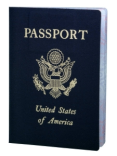Immigration 101: E-2 or Investment Visa
The E-2 or Investment visa is available for investors in a new or existing U.S. business. The investor must play an active role in the development and direction of the business. As with the E-1 visa, the E-2 investor must show that a "substantial" investment or funds are available and committed to the investment. Again, the "substantial" requirement is determined on a case by case basis. Investment in a manufacturing plant would require a higher dollar investment than investment in a consulting business, which may simply require a computer, facsimile and a telephone.








